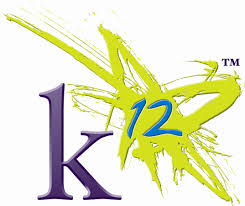
Florida’s public school accountability system could be on the verge of snaring one of the nation’s largest online education providers.
K12 Inc. is expected to get an initial “incomplete” when letter grades for Florida public school are released this month. But it’s still possible the final grade, whenever it is released, could be unflattering – with serious consequences for K12’s operation in Florida.
The state awarded K12 a D last year, and the company’s appeal was stymied in part because of data conflicts with school districts. If the company receives a D or an F in the next three years, it could be forced to sever its ties with nearly 50 school districts, its five virtual charter schools, and new virtual charters expected to open next year.
That would be the first time a digital learning provider faces that penalty since lawmakers first created a new system of “approved providers” and district-managed virtual instruction programs.
Representatives for K12 and the schools it helps manage in Florida say it’s hard to predict what its grade will be, or whether it will receive one for the current school year. The main reason, the company says, is that it has struggled to obtain student information from the districts where it operates virtual instruction programs.
But company officials are also questioning the state’s accountability framework for virtual providers, which grades those providers based on combined results for independently run virtual charter schools and school district programs, over which they have less control.
The state Department of Education has indicated it would give the company a grade of incomplete, at least for now, while officials try to sort out issues with data reported by 17 districts that have contracted with K12. It is not clear when a final grade may be out.
To understand K12’s situation, a little history is in order.
Florida’s virtual education system took a turn in 2008, when a new law required school districts to create new virtual instruction programs. The revised law allowed districts to supplement local virtual programs by hiring outside providers like K12, which currently contracts with 48 districts. It also required districts to offer at least three different options, which often included locally run franchises of Florida Virtual School, the state’s publicly run provider.
In 2011, Florida law authorized virtual charter schools. Their boards can hire companies like K12, or other state-approved providers, to manage their schools.
Under the current grading system, the state can issue grades to virtual charters. It also issues grades to providers, which for grading purposes combine their virtual charters and district instruction programs together.
Digital learning providers face more stringent accountability rules than district or charter schools. If they receive two D or F grades in any 4-year period, they can lose their “approved” status, meaning they lose the ability to contract with virtual charter schools or district programs.
Jim Horne, a former Florida education commissioner who now lobbies for K12 Inc., said there are drawbacks to combining the programs’ results in school grades.
“You could argue that you lose some transparency,” he said, because people “can’t really look into it and get the exclusive result for how that program or that school is doing, because they can only look at an aggregated, rolled-up provider grade.”
K12 tried to appeal its D grade last year, but there were delays in getting updated student records from districts. Jeff Kwitowski, the company’s senior vice president of corporate communications, said sometimes students enroll or withdraw and their records are not updated with the state. Other times, the company is not able to verify students’ enrollment records with districts.
In the waning hours of this year’s legislative session, the Senate attached an amendment to an education bill that could have helped K12 keep its contracts in place if its grade did not improve. Horne said the provision could have provided a “stopgap,” which would have given the state, the company and policymakers time to work through the issues the company raised.
But the bill died.
K12 received its first Florida letter grade, a B, in 2006, after it was selected to run a virtual pilot program. Its statewide program, known as Florida Virtual Academy, received A’s in its final three years.
Before the 2009-10 school year, it was replaced with the current decentralized model. K12 has since dropped a letter grade each year.
On the other hand, K12’s first virtual charter school opened last school year in Osceola County. Though it did not receive a letter grade on its own, state records show it earned enough points to receive a B.
The other provider that has worked with district virtual instruction programs in Florida is Connections Academy, which partners with Florida Virtual School. It serves fewer students, in a smaller number of districts. Last year, it received an A.
Horne said there’s a pattern in K12’s track record: Its programs perform better when it has full control. “You need to have the management control over the program, and you have to have reliable data,” he said. “I think that right now, in large part, we don’t have either.”
Education Commissioner Pam Stewart wrote the company in May, announcing her decision to issue a grade of “I” until it could verify student enrollment records. She said once this year’s grading issues are resolved, she would work with districts and the company to ensure the company gets information it needs from districts in a timely fashion.
“The department wants to ensure that K12’s school grade is calculated using appropriate information,” she wrote. “In order to be meaningful, school grades must be representative of a school’s student performance.”


